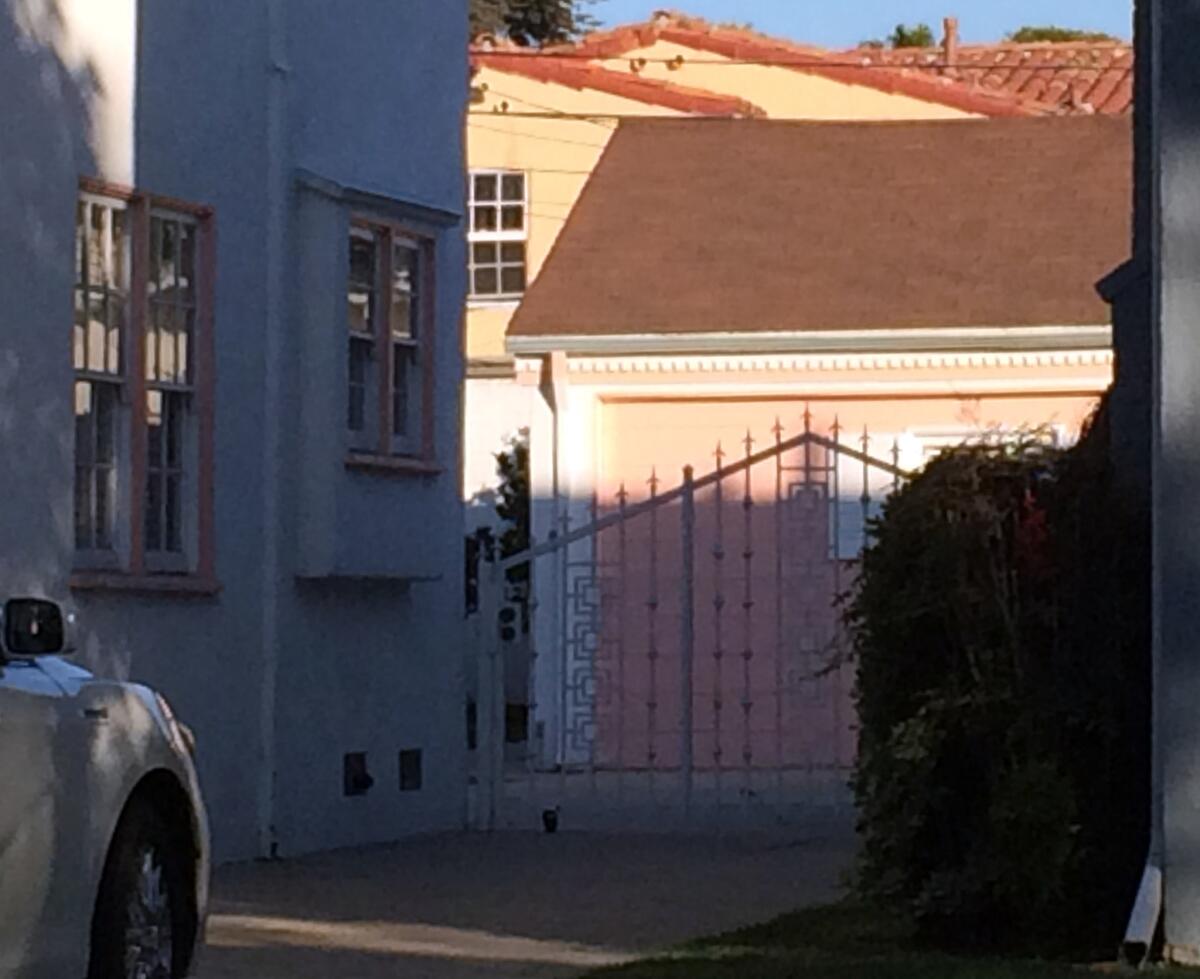D.A. probes work on Ridley-Thomas’ garage

- Share via
The Los Angeles County district attorney’s office is looking into whether thousands of dollars in taxpayer money was misspent on improvements to Supervisor Mark Ridley-Thomas’ home last year, an office spokeswoman said Tuesday.
Newly released records show that a contractor charged the county $6,239 to perform work during a project to install a security system that included replacing interior walls in Ridley-Thomas’ converted garage and trenching the property for an electrical upgrade.
The supervisor reimbursed the county $3,759 on Oct. 29 for an air conditioner and heater, a flat-screen television and a refrigerator the crews placed in the garage. Of that amount, $960 was for labor costs for installing the air conditioner and heater, according to the records.
The documents, which The Times obtained from the county under the California Public Records Act, provide the most complete picture yet of the scope and cost of the work in September and October at the supervisor’s Leimert Park home.
District attorney’s office spokeswoman Jean Guccione said the office’s review grew out of a complaint that prosecutors received last month. She declined to elaborate. The Times first reported on the work performed at Ridley-Thomas’ home in mid-January.
County supervisors are entitled to home security systems provided by the government, but not to unrelated improvements to their property at taxpayers’ expense. Ridley-Thomas has insisted that the work at his home was completely proper and that he reimbursed the county for any items not related to the security system.
The total cost to taxpayers for the job was $10,038, according to Assistant County Counsel Judy Whitehurst.
The records show that the county contractor was given the task of removing wall paneling and drywall from the supervisor’s detached garage and installing about 640 square feet of new drywall. The project included adding new baseboards as well as painting all new woodwork. Outside the garage, the contractor was to dig a trench through lawn and concrete from the home’s electrical panel to the garage, the records say. The work was to entail planting up to 1,000 square feet of Bermuda grass sod. The records did not detail how much of the work was done.
The documents describe the project as a “security measure.” The county redacted from the records descriptions of an additional $436 in work by the contractor, apparently because it was related to the security system. The name of the contractor was also withheld.
John Thompson, the county project manager who oversaw the work, previously told The Times that the trench was dug to bury conduit as part of electrical upgrades to make more power available to the garage.
Thompson said the garage already had standard current, but he believed the power upgrade was necessary for the security system. He added, however, that he was not an electrical expert.
Thompson said he recommended to Ridley-Thomas that the paneling be removed to make it easier to hide wiring in the walls for the alarms. He said dropping the wires behind the existing walls would have been difficult because the space was filled with insulation and the work would have damaged the wood paneling.
Thompson said he could not find the same style of paneling, so he suggested replacing it with drywall. He said he wanted the result to be appealing to the eye.
“It’s a county supervisor and I’m going to make it look nice,” Thompson said. “Our function is to keep the supervisors happy. They’re our boss.”
Alarm and electrical experts said in interviews that high-end security systems typically do not require extra power. Nigel Smithers, Southern California general manager for Absolute Security Alarms, said the electrical work at Ridley-Thomas’ home would not be necessary for a security system. “It makes no sense,” said Smithers, a former military and California state police officer.
He also said there would be no need to remove or replace walls to run the wiring for a system: “Ripping the walls out? That’s ridiculous.”
“Any reputable alarm company could easily fish the wires in the wall.”
Ridley-Thomas has not responded to repeated requests for comment from The Times. . His spokeswoman, Lisa Richardson, referred The Times to a statement the supervisor made Monday that she said was reported by the Los Angeles Wave newspaper.
The Wave quoted Ridley-Thomas as saying that the project manager recommended that crews “could also attend to other improvements in the same 300-square-foot room during the course of their work. This seemed to be the most secure and efficient course, avoiding incompatibility between the work of [county crews ] and other contractors.”
Ridley-Thomas said the county’s Internal Services Division quoted him a price that he agreed to pay before the work was done, according to the Wave.
All of the improvements at Ridley-Thomas’ home were made without permits required by the city of Los Angeles, according to the city Building and Safety Department. After The Times reported on the upgrades to his garage, the department received a complaint and opened an investigation into whether the building had been converted into living space in violation of city codes.
Ridley-Thomas subsequently obtained a permit for work to make the conversion of the structure comply with the rules. Plans filed for the permit call for construction of a carport to satisfy a requirement that homes have covered parking.
More to Read
Sign up for Essential California
The most important California stories and recommendations in your inbox every morning.
You may occasionally receive promotional content from the Los Angeles Times.












